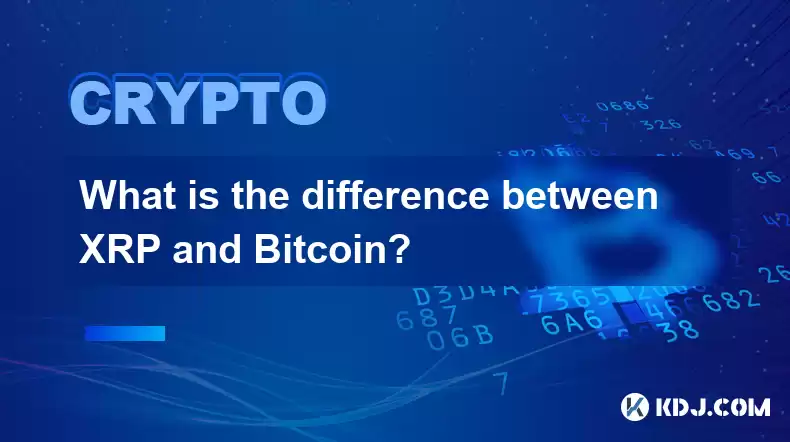-
 Bitcoin
Bitcoin $120300
1.24% -
 Ethereum
Ethereum $4311
2.06% -
 XRP
XRP $3.197
0.16% -
 Tether USDt
Tether USDt $1.000
0.01% -
 BNB
BNB $805.1
0.34% -
 Solana
Solana $179.6
-1.14% -
 USDC
USDC $0.9998
0.00% -
 Dogecoin
Dogecoin $0.2303
-1.21% -
 TRON
TRON $0.3442
1.08% -
 Cardano
Cardano $0.7938
-1.23% -
 Hyperliquid
Hyperliquid $44.55
-0.69% -
 Chainlink
Chainlink $21.81
-2.59% -
 Stellar
Stellar $0.4436
0.05% -
 Sui
Sui $3.728
-3.42% -
 Bitcoin Cash
Bitcoin Cash $586.5
2.00% -
 Hedera
Hedera $0.2530
-2.62% -
 Ethena USDe
Ethena USDe $1.001
-0.02% -
 Avalanche
Avalanche $23.65
-1.46% -
 Litecoin
Litecoin $124.5
-0.71% -
 Toncoin
Toncoin $3.384
1.63% -
 UNUS SED LEO
UNUS SED LEO $9.001
-0.44% -
 Shiba Inu
Shiba Inu $0.00001321
-2.42% -
 Uniswap
Uniswap $10.87
-2.31% -
 Polkadot
Polkadot $3.956
-2.80% -
 Cronos
Cronos $0.1681
4.79% -
 Dai
Dai $1.000
-0.01% -
 Ethena
Ethena $0.8090
1.30% -
 Bitget Token
Bitget Token $4.425
-0.55% -
 Monero
Monero $272.6
3.08% -
 Pepe
Pepe $0.00001169
-2.54%
What is the difference between XRP and Bitcoin?
Bitcoin, prioritizing decentralized storage, contrasts with XRP's focus on rapid, low-cost cross-border payments; XRP's centralized structure and regulatory scrutiny differ significantly from Bitcoin's more decentralized nature.
Mar 12, 2025 at 10:40 am

Key Points:
- Different Underlying Technologies: XRP uses a consensus mechanism distinct from Bitcoin's proof-of-work. This impacts transaction speed and energy consumption.
- Distinct Purposes: Bitcoin aims to be a decentralized digital gold, a store of value. XRP focuses on facilitating fast and inexpensive cross-border payments.
- Centralization Concerns: XRP's creation and distribution are more centralized than Bitcoin's, leading to differing opinions on its decentralization.
- Scalability and Transaction Fees: XRP boasts significantly faster transaction speeds and lower fees compared to Bitcoin.
- Regulatory Scrutiny: Both cryptocurrencies face regulatory uncertainty, but XRP has faced heightened scrutiny due to its association with Ripple Labs.
What is the difference between XRP and Bitcoin?
Bitcoin and XRP, while both cryptocurrencies, differ significantly in their technology, purpose, and regulatory landscape. Understanding these differences is crucial for anyone navigating the cryptocurrency market.
Underlying Technology: Bitcoin utilizes a proof-of-work (PoW) consensus mechanism, requiring energy-intensive mining to validate transactions. This contributes to Bitcoin's security but also limits its transaction throughput. XRP, on the other hand, employs a consensus mechanism called the Ripple Protocol Consensus Algorithm (RPCA), which is significantly more energy-efficient and allows for much faster transaction processing. This fundamental difference directly impacts the speed and cost of transactions.
Purpose and Use Cases: Bitcoin's primary goal is to serve as a decentralized digital gold, a store of value resistant to inflation and government control. Its limited supply and inherent scarcity contribute to this aim. XRP, conversely, was designed to facilitate fast, low-cost cross-border payments for financial institutions. Its focus is on enabling efficient international money transfers, aiming to disrupt the traditional SWIFT system.
Centralization: Bitcoin's creation and distribution were relatively decentralized, with no single entity controlling a significant portion of the supply. While mining pools exist, they don't represent centralized control in the same way. XRP, however, is associated with Ripple Labs, a company that holds a substantial portion of the total XRP supply. This has led to ongoing debates about XRP's level of decentralization and its susceptibility to centralized influence. The degree of control exerted by Ripple Labs remains a point of contention within the crypto community.
Scalability and Transaction Fees: Bitcoin's PoW mechanism, while secure, results in relatively slow transaction speeds and higher fees, especially during periods of high network activity. XRP's RPCA allows for significantly faster transaction processing and drastically lower fees, making it more attractive for high-volume transactions. This difference in scalability is a key factor influencing their respective suitability for different use cases.
Regulatory Landscape: Both Bitcoin and XRP face regulatory uncertainty globally. Governments worldwide are grappling with how to regulate cryptocurrencies, leading to inconsistent and evolving rules. However, XRP has faced heightened scrutiny due to the ongoing legal battle between Ripple Labs and the Securities and Exchange Commission (SEC). The SEC's claim that XRP is an unregistered security has significantly impacted XRP's price and market perception. This regulatory uncertainty adds a layer of complexity for investors in both cryptocurrencies.
The Ripple Protocol Consensus Algorithm (RPCA): A Deeper Dive
The RPCA is a unique consensus mechanism that differs significantly from Bitcoin's PoW. It relies on a network of validators who maintain the XRP Ledger. These validators are chosen based on various factors, including their stake in XRP and their historical performance. The RPCA aims for speed and efficiency while maintaining a degree of decentralization. Understanding the intricacies of RPCA is essential for grasping XRP's capabilities and limitations.
Security Considerations: Both Bitcoin and XRP have their own security considerations. Bitcoin's security is largely derived from its PoW mechanism and the vast network of miners securing the blockchain. XRP's security relies on the integrity of the RPCA and the validators participating in the network. Both systems have inherent vulnerabilities, and understanding these risks is crucial for responsible cryptocurrency investment.
Mining and Transaction Validation: Bitcoin's mining process involves computationally intensive tasks to validate transactions and add new blocks to the blockchain. This process consumes significant energy. XRP doesn't involve mining in the traditional sense. Transactions are validated by the validators participating in the RPCA. This leads to significantly lower energy consumption compared to Bitcoin.
Community and Development: Bitcoin boasts a large and established community, with extensive documentation and development support. XRP's community is also active, but it is smaller and potentially more influenced by Ripple Labs. The level of community involvement and independent development play a role in the long-term sustainability of each cryptocurrency.
Frequently Asked Questions:
Q: Is XRP a security?
A: The SEC alleges that XRP is an unregistered security, a claim Ripple Labs contests. The outcome of the legal battle will significantly impact XRP's future.
Q: Which is more decentralized, Bitcoin or XRP?
A: Bitcoin is generally considered more decentralized due to its lack of a central controlling entity like Ripple Labs.
Q: Which is faster and cheaper to use, Bitcoin or XRP?
A: XRP offers significantly faster transaction speeds and lower fees than Bitcoin.
Q: Which is better for long-term investment, Bitcoin or XRP?
A: This depends entirely on individual risk tolerance and investment strategy. Both have potential, but also significant risks. There is no single "better" option.
Q: How do I acquire XRP and Bitcoin?
A: Both can be acquired through various cryptocurrency exchanges. However, it is crucial to use reputable and secure exchanges.
Disclaimer:info@kdj.com
The information provided is not trading advice. kdj.com does not assume any responsibility for any investments made based on the information provided in this article. Cryptocurrencies are highly volatile and it is highly recommended that you invest with caution after thorough research!
If you believe that the content used on this website infringes your copyright, please contact us immediately (info@kdj.com) and we will delete it promptly.
- Token Security, Agentic AI, Cybersecurity Guide: Navigating the New Frontier
- 2025-08-11 23:00:12
- Crypto Investments: Riding the Meme Wave with Layer Brett and Dogecoin
- 2025-08-11 23:00:12
- Nexchain, Crypto Presales, and Bitcoin Volumes: What's the Buzz?
- 2025-08-11 23:10:13
- Ethereum Treasury, Bitcoin, and Michael Saylor: A NYC Take on the Crypto Landscape
- 2025-08-11 23:10:13
- Pumpfun vs. Pepe Dollar: The Meme Coin Arena Heats Up
- 2025-08-11 23:10:14
- Altcoins Primed for a Bull Run: Investment Gains in the Making
- 2025-08-11 23:10:14
Related knowledge

How to purchase Aragon (ANT)?
Aug 09,2025 at 11:56pm
Understanding Aragon (ANT) and Its PurposeAragon (ANT) is a decentralized governance token that powers the Aragon Network, a platform built on the Eth...

Where to trade Band Protocol (BAND)?
Aug 10,2025 at 11:36pm
Understanding the Role of Private Keys in Cryptocurrency WalletsIn the world of cryptocurrency, a private key is one of the most critical components o...

What is the most secure way to buy Ocean Protocol (OCEAN)?
Aug 10,2025 at 01:01pm
Understanding Ocean Protocol (OCEAN) and Its EcosystemOcean Protocol (OCEAN) is a decentralized data exchange platform built on blockchain technology,...

Where can I buy UMA (UMA)?
Aug 07,2025 at 06:42pm
Understanding UMA and Its Role in Decentralized FinanceUMA (Universal Market Access) is an Ethereum-based decentralized finance (DeFi) protocol design...

How to buy Storj (STORJ) tokens?
Aug 09,2025 at 07:28am
Understanding Storj (STORJ) and Its Role in Decentralized StorageStorj is a decentralized cloud storage platform that leverages blockchain technology ...

Where to find the best price for Audius (AUDIO)?
Aug 11,2025 at 04:01pm
Understanding the Basics of Ethereum StakingEthereum staking refers to the process of locking up ETH tokens to support the security and operations of ...

How to purchase Aragon (ANT)?
Aug 09,2025 at 11:56pm
Understanding Aragon (ANT) and Its PurposeAragon (ANT) is a decentralized governance token that powers the Aragon Network, a platform built on the Eth...

Where to trade Band Protocol (BAND)?
Aug 10,2025 at 11:36pm
Understanding the Role of Private Keys in Cryptocurrency WalletsIn the world of cryptocurrency, a private key is one of the most critical components o...

What is the most secure way to buy Ocean Protocol (OCEAN)?
Aug 10,2025 at 01:01pm
Understanding Ocean Protocol (OCEAN) and Its EcosystemOcean Protocol (OCEAN) is a decentralized data exchange platform built on blockchain technology,...

Where can I buy UMA (UMA)?
Aug 07,2025 at 06:42pm
Understanding UMA and Its Role in Decentralized FinanceUMA (Universal Market Access) is an Ethereum-based decentralized finance (DeFi) protocol design...

How to buy Storj (STORJ) tokens?
Aug 09,2025 at 07:28am
Understanding Storj (STORJ) and Its Role in Decentralized StorageStorj is a decentralized cloud storage platform that leverages blockchain technology ...

Where to find the best price for Audius (AUDIO)?
Aug 11,2025 at 04:01pm
Understanding the Basics of Ethereum StakingEthereum staking refers to the process of locking up ETH tokens to support the security and operations of ...
See all articles

























































































